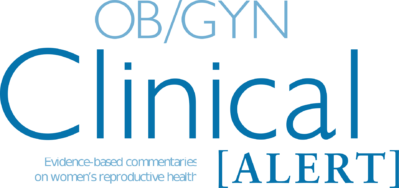
OB/GYN Clinical Alert – March 1, 2005
March 1, 2005
View Issues
-
Is it Worthwhile to do a Single Fecal Occult Blood Test?
Fecal occult blood tests (FOBTS) were performed on samples from digital rectal examinations in 2665 average-risk asymptomatic adults. In addition, each patient had 6-sample at-home FOBTs done. Colonoscopy was also completed in each subject. -
Secondary Surgical Cytoreduction for Advanced Ovarian Carcinoma
For patients with advanced ovarian carcinoma in whom primary cytoreductive surgery was considered to be maximal, the addition of secondary cytoreductive surgery to postoperative chemotherapy with paclitaxel plus cisplatin does not improve progression-free survival or overall survival. -
Postmenopausal Hormone Therapy and Gallbladder Disease
The mechanism for a possible adverse effect of hormone therapy on the biliary system is believed to be estrogen-induced increases in cholesterol saturation in the bile and progestin inhibition of gallbladder contraction, leading to gallstone formation. -
Consumption of Vegetables and Fruits and Risk of Breast Cancer
The present study was undertaken to test the hypothesis that high fruit and vegetable consumption reduces the risk of breast cancer. A multinational team of investigators conducted a prospective, observational study of the relationship between fruit and vegetable intake and invasive breast cancer as part of the European Prospective Investigation Into Cancer and Nutrition (EPIC) study. -
Validation of Referral Guidelines for Women with Pelvic Masses
The SGO and ACOG referral guidelines effectively separate women with pelvic masses into 2 risk categories for malignancy. This distinction permits a rational approach for referring high-risk patients to a gynecologic oncologist for management. -
Treating Polycystic Ovaries with Rosiglitazone
Sepilian and Nagamani from the University of Texas in Galveston reported the results of rosiglitazone treatment in 12 obese women with polycystic ovaries and insulin resistance. These women were very heavy, with an average BMI of 40.4. The fasting insulin levels (an average of 46.0 µU) were clearly in the range of hyperinsulinemia due to an increase in insulin resistance. -
Readers are Invited. . .
-
Pharmacology Watch: The Risk of Aspirin Withdrawal in ACS Patients
Neuropsychiatric Symptoms of Dementia, FDA Actions. -
Clinical Briefs in Primary Care supplement
